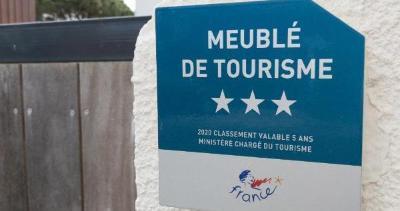Permanent housing and tourist accommodation: striking the right balance
avril 2024
There can be no development of tourism without harmony between tourists and local residents on the one hand, and without a balance between tourist accommodation and year-round accommodation on the other. For several years now, the government has been keen to strike a balance between the economic impact of the development of furnished accommodation and respect for local economic and social balances. It was necessary to go even further in the search for a balance between tourism and local life and to give elected representatives regulatory instruments.
À télécharger : dp_lutte_attrition_logements_permanents_zone_touristique.pdf (620 Kio)
A bill to strike a balance between permanent accommodation and tourist accommodation

On Wednesday 24 April 2024, the Joint Commission on Town Planning and Housing was organised by France urbaine, Intercommunalité de France and the Fond national d’aide d’urgence (FNAU), and chaired by Adrien Delacroix, Vice-Chairman of Plaine Commune, Deputy Mayor of Saint-Denis and Chairman of Plaine Commune Habitat, and Virginie Lutrot Carolo, Mayor of Port-Jérôme-sur-Seine, Chairman of Caux Seine agglo and Vice-Chairwoman in charge of Budget and Finance for the Normandy Region.
Inaki Echaniz, Member of Parliament, gave an update on the progress of the bill aimed at remedying the imbalances in the rental market in stretched areas.
In particular, he outlined the origins of the bill and its main objectives, which are to overhaul the data by systematising the registration number, extend the possibility of implementing a change of use to a wide range of areas, reduce the number of days you are allowed to rent out your principal residence, and carry out an overall review of tax-based rental schemes in order to create a better balance between accommodation intended for permanent residents and tourist accommodation.
One of the main aims of this law is to secure the frameworks that local authorities will have to implement in order to control the development of this type of offer, which, due to a lack of control tools, has created damaging competition with the traditional rental market and, overall, with local residents’ housing.

Although the implementation of the project has been complex, and local authorities have often been faced with numerous legal challenges to the measures they wished to implement, the consultation carried out with all the players in the sector and the public authorities has enabled us to produce a balanced text that aims to maintain a real potential for the development of quality tourist accommodation, without this being to the detriment of housing for all. This was the thrust of the committee’s debate, at the end of which the MP encouraged the regions to contribute to the survey put online by the Senate on this project.